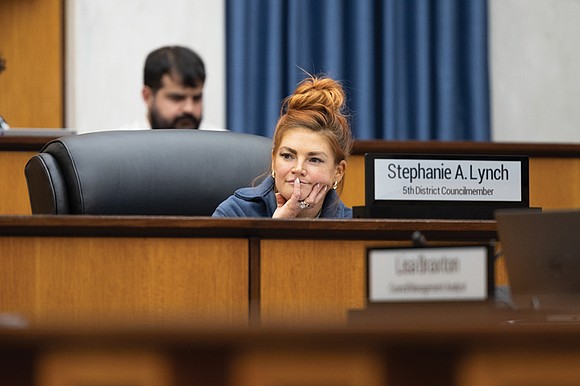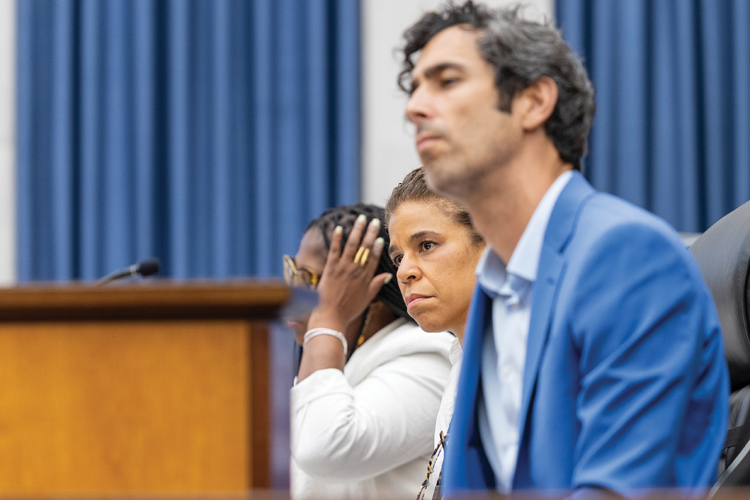Debate continues as Council delays action on leaders’ residency rule
George Copeland Jr. | 6/26/2025, 6 p.m.

An ordinance that could require more city leaders to live in the city was delayed by City Council for further consideration during their Monday meeting.
The ordinance, sponsored by six council members, would increase the number of positions requiring city residency from 12 to 43. Roles that would be affected include the chief administrative officer, city attorney, inspector general and several department directors.
Council members backing the ordinance say it would help ensure that highly paid leaders better understand and respond to Richmond’s needs, improve their work for the city and strengthen public trust.
“It is important that people building the systems are part of the systems that they are building and improving,” 4th District Council member Sarah Abubaker said during a committee meeting weeks earlier.
 Kenya J. Gibson, 3rd District council member, listens to public comment during a City Council meeting Monday, June 23.
Kenya J. Gibson, 3rd District council member, listens to public comment during a City Council meeting Monday, June 23.Mayor Danny Avula and his administration have opposed the requirement. A memo from Avula’s office and comments from city officials have raised concerns since the ordinance was introduced, including its potential impact on attracting top talent, competing with other governments, retaining employees, maintaining diversity and avoiding disruptions to agency leadership.
“The proposal offers no evidence that residency requirements improve performance, and it ignores the rationale that led the city to relax such requirements just a few years ago,” the memo states. “The expanded residency mandate would weaken our recruitment pipeline, disrupt operations, reduce diversity, and ultimately harm the city’s ability to serve its residents effectively.”
The residency proposal is scheduled to be discussed at a special City Council meeting on Monday, July 7.
The Avula administration and City Council were more aligned on other items on the agenda. Both backed a resolution to create a work group that will work with Richmond Public Schools to develop a funding formula for allocating annual revenue for school operating expenses. The work group is expected to deliver a report with recommendations on how to implement the formula by October.
City Council also unanimously approved a resolution supporting more speed cameras at high-risk intersections.






